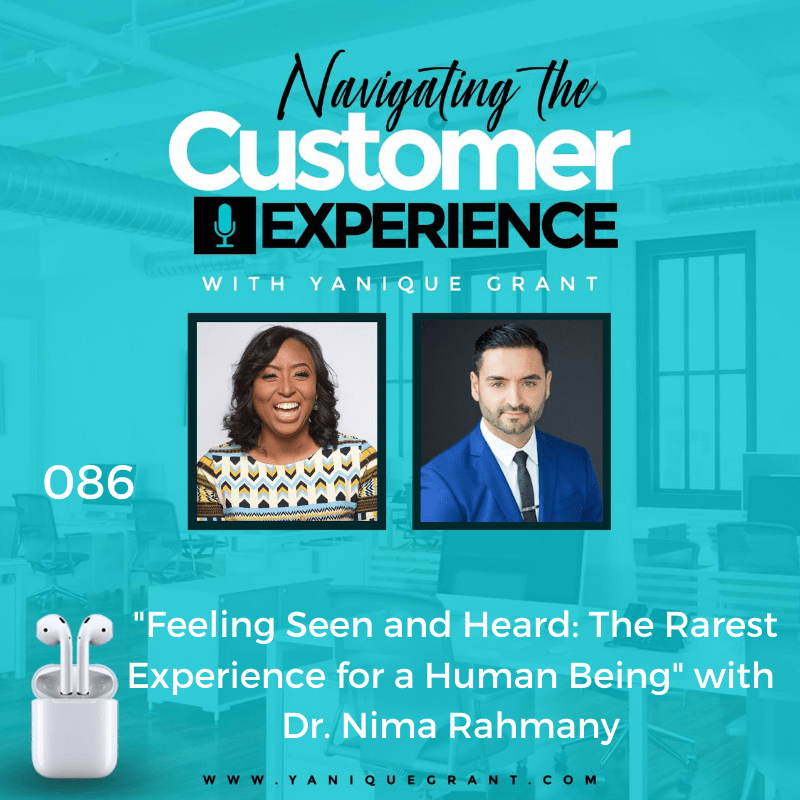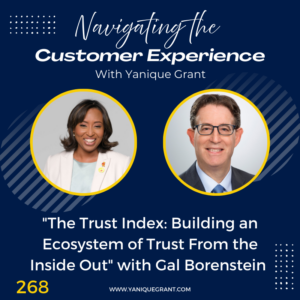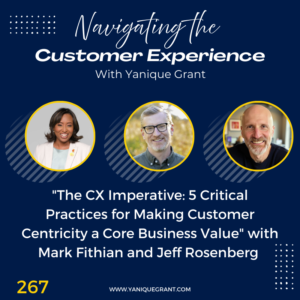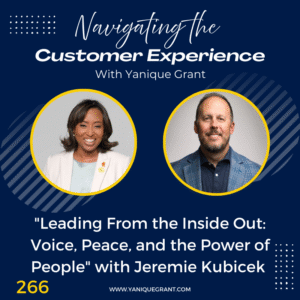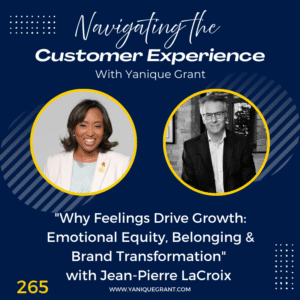Dr. Nima Rahmany, DC, CCWP is both a Chiropractor and an educator, specializing in helping individuals and professionals get to the ROOT CAUSE of their physical and emotional challenges, from stressed, depressed, and anxious to living powerfully aligned and on purpose.
After building a successful Chiropractic practice in Maple Ridge, BC, Dr. Nima sold his clinic in June 2016 to pursue his passion for teaching and coaching professionals who are stressed, depressed, and anxious to transform and have their best year ever – in both a private and corporate setting.
Questions
- Could you share with us a little bit about your journey, how it is that you got to where you are today?
- For those of our listeners that are listening, whether they’re business owners or they are employees of an organization, could you give them maybe two or three tips that will help them to become more grounded and present in those types of conversations?
- How do you stay motivated every day?
- Could you share with us what’s the one online resource, tool, website or app that you absolutely cannot live without in your business?
- What are some books that have had the biggest impact on you?
- Can you share with us what’s one thing that’s going on in your life right now that you’re really excited about – either something that you’re working on to develop yourself or your people?
- If our listeners listen to you today and there is one takeaway that you could advise them to take from this interview, this engagement, this conversation that we’re having to make them stronger individually or to make them stronger as a leader or even as an employee in their organization. What would that one thing be?
- Where can our listeners find you online?
- Could you share with us maybe a quote or saying that during times of adversity or challenge, you would rely on this quote or you would say it to yourself or you would remind yourself of this to kind of be refocused and just get back on track.
Highlights
- Nima shared that he is a chiropractor. He was 13 years old when he had his first chiropractic adjustment and he got up off the table and he was like, “This is it. This is it. The end all and be all of healing.”
He knew he wanted to be a doctor helping people. He thought that by adjusting the spine, getting to the root cause of the problem rather than just masking the problem with pills was the way to go.
And what he didn’t realize was that 10 years, 15 years into the process of being in practice, realizing that people were coming in really with stress related disorders, and if you really get to know them, they’re usually on the wake of some sort of a identity crisis, relationship crisis. Those are real stress related issues, are crises, these spiritual work-related relationship crises, limbo, infidelity, breakdowns, divorce, old traumas that we’ve been holding on to based on relationship crises.
When he started to understand that these were the patterns that were bringing people in to see him, his ego was not satisfied. He wanted to go deeper.
So he started creating these three hour workshops called Life Skills for a Stressful World for his patients, they are on Saturday mornings and he would notice that the patients that would come in to those events would have better outcomes because they took responsibility, they understood how to listen to the messages of their body.
And slowly but surely, it became more fun for him to teach those classes than it was to come and deal with the end stages of stress. So, fast forward 10 years, now he leads a global community of self healers, teaching them tools and skills to heal themselves from their old conditioning patterns and heal their attachment wounds.
Yanique asked, can you tell me how you think that connects on an individual level, if it is that you are healed and you are functioning at your fullest capacity,if it is that you’re feeling pain or discomfort and you’re not healed, how does that translate into someone’s customer experience?
Dr. Nima shared that creating an amazing customer experience is all about Empathy. It’s all about being able to get yourself out of your own victim’s story and empathize 100% with the customer.
And so, if you have chronically self abandoned, if you have a pattern in your life where you’ve had trauma and when you have trauma, you self abandon.
What happens when you have a customer experience that’s not a fulfilling one and you have someone that’s really having a difficult time and you are working with somebody who’s triggered in front of you.
You will go into the pattern of self abandonment again and create an exorbitant amount of stress rather than being able to contain your own emotions and hold your own ground internally, set your own boundaries internally, you’ll become enmeshed with that other person.
Their emotions will become your emotions if you haven’t done the inner work, that’s it a very subtle but key component of creating a great customer experience is not enmeshing yourself with the other person’s emotions.
Yanique mentioned emotional management, managing your emotions. It’s funny you mentioned emotions, because in our customer service training, our definition of a quality experience is meeting and exceeding the emotional and intellectual needs of the customer. And over the years, we found that the emotional is actually even greater than the intellectual.
Dr. Nima agreed. The thing is that the rarest experience for a human being is to feel seen and heard. The rarest experience. So if he’s talking with Yanique, and he’s able to see and hear and empathize with himself first, he knows exactly who he is and he’s grounded in his roots.
Then he’s able to then come from a place of overflow and now meet what your needs are. Because he’s already so firmly grounded in himself that he can then empathize with you. He can see you and hear you. He can see the commitment behind the words you’re using. He’s paying attention. He’s present with you.
He’s listening to the non-verbal cues that you’re giving him, the tone of your voice. He can listen from a place of genuine curiosity rather than from a place of I hope this person likes me. So there’s a difference. It’s a felt sense difference. If he’s speaking to you and he’s genuinely looking after you versus, “Okay, so I hope I don’t get into trouble. I hope you don’t report me.” There’s a completely different feel that he’s on a call with you, it’s a presence, that’s different, that’s palpable.
- Nima shared that the first thing is being grounded and connected with your breath and your body and sensation is the first thing, because what’s going to happen is when you are on a call and there’s a customer who is irate, who’s going to have a bad day or maybe just yelling and screaming or whatever that’s going on. If you haven’t really properly healed from your traumas, what you’re probably going to hear is your mother screaming at you or it’s going to sound like your father, your body is going to go into this state of alarm and you’re going go into story and you’re going to turn into that five year old, you’re going to turn into that 10 year old who is getting screamed at by mom or dad. And so the first step is to get into the awareness, getting into breath and getting into body right away, because what happens is you dissociate and you go back. It’s as though you’re experiencing that trauma all over again. It’s not back then anymore, it’s happening in the now in your nervous system. It’s a felt sense. So, you have to really be aware of that. The first thing you want to do is to get right into breath, get into body and just feel the sensations coming up, touching your hand over your chest and really just repeating the words, “Those are their feelings, these are my feelings.” really separating your own self from that other person to prevent enmeshment. That’s really the first thing that you want to do. You want to start and realize that their frustration is coming from a wound. So the best thing that you can do for yourself is to see through their wounding is to see through it because that’ll help you not taking it personally and be able to be responsible rather than reactive.
Number two is to listen to them through their wounding, see a child inside of them that doesn’t feel seen and heard. If you look at them through the lens of a wound, then it’s not as threatening.
You’re looking at them as a child having a tantrum instead of a real threat to you. So if you see through them, see through whatever, if it’s a difficult conversation, see through their challenge, see through their words as a wounded child that doesn’t feel seen and heard.
You can help them tremendously, feel, seen and heard, repeating back, empathizing with them, repeating the sensations, repeating like it’s tactical empathy. “Well, it sounds to me like you’re feeling so-and-so. It seems like you’re feeling so-and-so.”Seeing them through the lens of their wound is the assure fire way to drop the whole personal-ness of the interaction and feel like it’s a lot more, it’s less personal and you can actually be of service to that person.
First, you have resourced yourself, you put the oxygen mask on yourself first and you take care of you and once you’ve done that and you acknowledge yourself and you’ve done that you then turn in and acknowledge them and realize the rarest experience for a human is to feel seen and heard. So, if you’re able to just see them and hear them and empathize with them that is the greatest regulation for your nervous system that you can do.
Number three basically is after you’ve done that, you then approach it with curiosity. The third step is with curiosity. “So I’m curious, what would work out best for you? Let’s see how we can make this work.” Once you’ve empathize with them, you’ve now helped regulate their nervous system, you turn to curiosity. I wonder what would happen if, I wonder if, just approaching it with a playful curiosity, guaranteed you’ll come up with a solution.
So there you have it, folks. If you are struggling and you want these three tips, these you can implement with immediate effect heard and live on direct here on Navigating the Customer Experience from Dr. Nima, getting into breath and body, feeling the sensations. Listening to the other person through their woundings, seeing their words, tactical empathy, and then approaching with playful curiosity. What would work best for you?
- When asked how he stays motivated, Dr. Nima shared that he has a mission statement that every client that he works with, they create a personal and business mission statement thathelps you stand for something greater than yourself. So, if you’re connected to a Why that’s big enough and connect with it every day, then you don’t need motivation, you’re actually inspired. So, the best way to stay motivated is to listen to content that’s inspiring and be connected to a mission that’s greater than yourself.
Dr. Nima shared that his biggest Why really is he stands for healed families. The work that he does help breaking the cycles of intergenerational trauma. We grow up in environments with families where our parents didn’t really have understanding of the nervous system and the importance of emotional attunement.
So, often our primary caregivers didn’t really know how to meet our emotional needs for feeling seen and heard. So we then start to replay these attachment wounds from our primary caregivers in our relationships, and we get married with these unhealed attachment wounds, replaying all of the same kind of cycles and complexes that we lived in childhood, you marry your mother, you marry your father, and you don’t really realize it.
And that creates this toxic environment which then creates intergenerational trauma that children experience the exact same thing. And it just gets passed down from one generation to another. And families get divided and broken down and then that destroys people’s health and well-being. And then we have a health care system that’s in crisis but if we just go upstream and start to do our healing work of healing our attachment wounds and then healing those open loops in family dynamics, huge shifts can happen. So, he stands for healed families.
When asked about an online tool that he can’t live without in his business, Dr. Nima shared that in his business, it would be Audible. He listens to audio books every single day. Your business is going to only grow to the degree that you grow, it’s a personal development benchmark and so the more you develop yourself, the more your business will develop.
Nima shared that the biggest impact for sure has been the book The Miracle Morning: The 6 Habits That Will Transform Your Life Before 8 AM by Hal Elrod and it just how to really structure your day and make sure that you do all of your morning and evening rituals to structure your day, it’s been a hugely impactful book.
Nima shared that it’s both; it’s kind of going through him. He just got married a month ago and they’re about to have a baby in October. And so, making sure that there’s that feeling of safety and connection and secure attachment at home so that the baby feels safe in an environment where there’s love and presence and attunement. And he’s just really delighted to be able to share that and start helping others create secure attachments at home as well.
Nima shared that that one thing would be to heal your attachment wounds. Just go and take whatever that you have been resenting, your greatest resentment that you feel wounded by and find a completion with it, get complete with that. That’s really the greatest gift that you can give. The greatest gift that you can give your child is a fully healed parent. Imagine growing up in an environment where if your parents did the healing work themselves, their inner work. How would that have changed your experience if your parents had that opportunity to heal their attachment wounds?
Yanique agreed that they would definitely make a great improvement because we are parents and unfortunately, there is no book that you’re given when you become a parent that pretty much gives you a play by play of what to do and when to do it. And of course, yes, every child is different. And I’m sure you’ll come to realize that when you become a parent yourself. I struggle daily. I have a 14 year old and Lord knows there are times when I have to myself find a book that kind of helps me to navigate as to what do I do when she’s at this troublesome teenage time in her life when she’s clearly trying to find herself. But then maybe I’m not the one that she really wants to talk to. How do I make myself more accessible to that?
Dr. Nima mentioned that he has an answer for that one. What you do in those situations, is whatever’s coming up for you instead of trying to help her, what you do is you go inside. You’ve got to understand, is she’s here to teach you just as much as you’re here to teach her. So, whatever she’s bringing up for you, a disconnection that she’s experiencing is a mirror for your own disconnection. And if you go back, there’s a tool that he has come up with called the overview method, which helps you go back to your wounding that her issue is bringing up in you and you get complete with that. He puts that in his workshop, it’s called How to Connect to a Disconnected Child or Teen and it helps you connect with the 14 year old inside of you and empathize with that part of you and once you’ve done that, the answer basically takes care of itself, it’s pretty magical.
- Nima shared listeners can find him at –
Facebook Group – Triggerproof (Join Dr. Nima’s Facebook Group as he covers content on how to regulate stress and strengthen immunity during this global crisis – he posts daily)
Website –www.drnima.com
Dr. Nima is offering his virtual workshop for FREE to all listeners of this podcast –www.drnima.com/vw1 PROMO CODE: triggerproof (all one word lower case no spaces) Complimentary 90 minute workshop on how to become trigger proof
- Nima shared that his saying/quote that he relies on during times of adversity, it is from his friend, Dr. Russell Kennedy, “Am I safe in this moment?” It’s kind of introspection. It’s a really good one and then you just acknowledge because it’s only in your mind that you’re not safe usually.
Links
- The Miracle Morning: The 6 Habits That Will Transform Your Life Before 8 AM by Hal Elrod
- Link to FREE virtual course offered by Dr. Nima to all Navigating the Customer Experience Listeners – drnima/vw1 – promo code – triggerproof (all one word lower cases and no space)
Do you want to pivot your online customer experience and build loyalty – get a copy of “The ABC’s of a Fantastic Customer Experience.”
The ABC’s of a Fantastic Customer Experience provides 26 easy to follow steps and techniques that helps your business to achieve success and build brand loyalty.
This Guide to Limitless, Happy and Loyal Customers will help you to strengthen your service delivery, enhance your knowledge and appreciation of the customer experience and provide tips and practical strategies that you can start implementing immediately!
This book will develop your customer service skills and sharpen your attention to detail when serving others.
Master your customer experience and develop those knock your socks off techniques that will lead to lifetime customers. Your customers will only want to work with your business and it will be your brand differentiator. It will lead to recruiters to seek you out by providing practical examples on how to deliver a winning customer service experience!
Join Our Mailing List for future articles, podcasts and videos on Customer Experience

